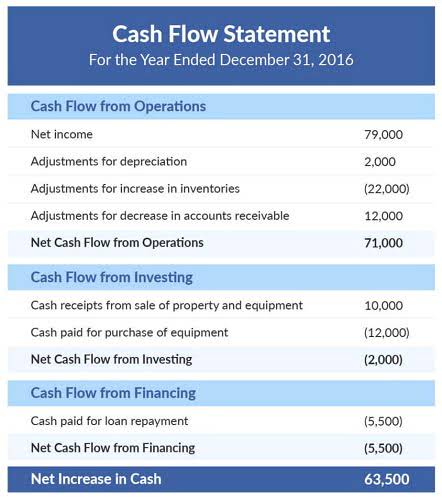A structured budget will enable you to conquer challenges, plan for unanticipated costs, and remain in budget with your company goals. Being a new business person, you must be acquainted with Indian startup legal and tax responsibilities. Knowing the basics avoids fines and penalties and keeps your startup in compliance with regulators.
Ledger Accounts
Below, we’ll share some tips and best practices for setting up an efficient accounting system that grows with you. Calculating this point allows you to set realistic pricing strategies, evaluate profitability, and make informed decisions to ensure long-term financial health. However, if you know how to start right and implement the following accounting tips for startups, the journey can be smoother. Programs like QuickBooks and FreshBooks simplify data entry, allow for easy report generation, and reduce the likelihood of errors. While bookkeepers maintain accurate records, accountants analyze those records to help you understand your financial position and make strategic decisions. This statement is essential for identifying liquidity issues and ensuring you have enough cash to cover operating expenses.
Choosing the Right Accounting Method
- Startups need to build a solid accounting foundation to stay organized, increase efficiency, obtain financing, control expenses and identify possible risks and opportunities for the business.
- Without accurate financial records and a clear understanding of your business’s financial well being, sustaining operations might prove difficult.
- Accounts Receivable reflects future revenue that has been billed but not yet received.
- If your business succeeds, eventually you’ll find you have many accounts to manage.
Additionally, consider obtaining a business credit card for expenses related to the startup. This separation makes it easier to track and manage business expenses, helping you stay organized and claim tax deductions effectively. In this guide, we’ll cover how to streamline your startup https://www.bookstime.com/articles/accounting-technology-for-the-future accounting process. If you are using a startup accounting software, these documents will be created for you. A strong understanding of your business’s financial health is essential to the success of your company.
- As a startup owner, your focus is likely set on acquiring customers and generating revenue.
- By staying on top of cash flow management, startups can avoid financial difficulties and position themselves for long-term success.
- To ensure that journal entries have been recorded and posted correctly, small businesses use the trial balance accounting method to double-check account balances for a given time period.
- You should seek the advice of a competent attorney or accountant licensed to practice in your jurisdiction for advice on your particular situation.
- Surprises happen – broken equipment, last-minute hires, or unexpected tax bills.
- Popular choices include QuickBooks, Xero, and FreshBooks, each providing scalable options as your business grows.
Keep a Watchful Eye on Expenses
Combined with good monthly reporting analysis of comparisons to plan is the tool that allows you to iterate and become successful. Unless your business model is very simple, we recommend accrual accounting. It is a little more complicated but in most cases vastly more useful in showing your financial position. Cash is still and will always be king so couple accrual accounting with some cash forecasting if that is helpful.
- Cash-based accounting records transactions when money changes hands, while accrual-based accounting records them when they are earned or incurred.
- We analyze your business model, funding structure, and growth trajectory to develop a tax strategy that minimizes your liabilities.
- This software offers accounting and bookkeeping services for startups suitable for various industry types.
- Underestimating tax liabilities can result in unexpected financial strain and penalties.
- The first and foremost step you should take while trying to manage the financials of your startup is to know about the laws that apply to your business.
Accounting for Your Startups: Essential Steps and Best Practices
Drawing up a cash flow statement and income statement on a monthly or quarterly basis is a key startup accounting step. These statements give you a handle on how your income, expenses, and cash compare to your budget and where the variances lie. You can spot your top expenses and rainmakers and plan for the future accordingly. Developing an effective bookkeeping and accounting system is crucial to your startup’s financial health. We accurately track and record your transactions and provide summaries and analyses of your financial position and health.
Even if your team is small, establishing checks and balances, such as requiring dual approval for significant expenses, can mitigate risks. QuickBooks Online, for example, integrates smoothly with automated systems like payroll, enhancing efficiency. Implementing a digital bookkeeping system can further streamline operations by automating repetitive tasks, reducing the likelihood of human error, and saving valuable time. Automating accounting processes allows you to focus on strategic aspects of your business while accounting tips for startups ensuring accuracy and efficiency in your financial management.
Reconcile Bank Accounts
Accounting Prose empowers our clients with the accurate data they need to make crucial financial decisions and successfully scale their business. Accurately recording expenses is critical for a business to be successful, and it’s important that all financial activities are accurately documented. Getting expert guidance can help maintain financial control and prevent potential issues in the future. Office supplies are tax-deductible expenses that can benefit small businesses in multiple ways. In general, office supplies are defined as consumable items that are necessary for conducting business operations, such as paper, pens, printer ink, toner, envelopes, and other similar online bookkeeping items.






